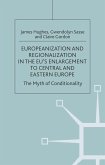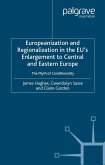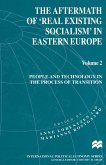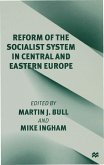"Bafoil s book combines an empirically rich and theoretically valid analysis of the impact of the European Union on the Central and Eastern European states. A significant and stimulating contribution to understanding the process of Europeanization and social change in the new member states." - Wolfgang Wessels, Jean Monnet Chair, University of Cologne
"This ambitious attempt at analysis of today s Central and Eastern Europe covers a very broad area of issues concerning politics, economies and societies put in comparative perspective. The author, a well-known specialist on these problems, provides a theoretical framework which makes his arguments very convincing. The basis of François Bafoil s thinking is that history and local trajectories of development do matter. Only by taking them into account might we be able to understand how countries of Central and Eastern Europe confront modernization and "Europeanization". The interplay between past and present, between local and global, is fundamental here. This book is addressed to a broader audience willing to understand better today s enlarging Europe and to specialists who might learn how modern social sciences may help this understanding." - Andrzej Rychard, Professor of Sociology, Polish Academy of Sciences
"This ambitious attempt at analysis of today s Central and Eastern Europe covers a very broad area of issues concerning politics, economies and societies put in comparative perspective. The author, a well-known specialist on these problems, provides a theoretical framework which makes his arguments very convincing. The basis of François Bafoil s thinking is that history and local trajectories of development do matter. Only by taking them into account might we be able to understand how countries of Central and Eastern Europe confront modernization and "Europeanization". The interplay between past and present, between local and global, is fundamental here. This book is addressed to a broader audience willing to understand better today s enlarging Europe and to specialists who might learn how modern social sciences may help this understanding." - Andrzej Rychard, Professor of Sociology, Polish Academy of Sciences








